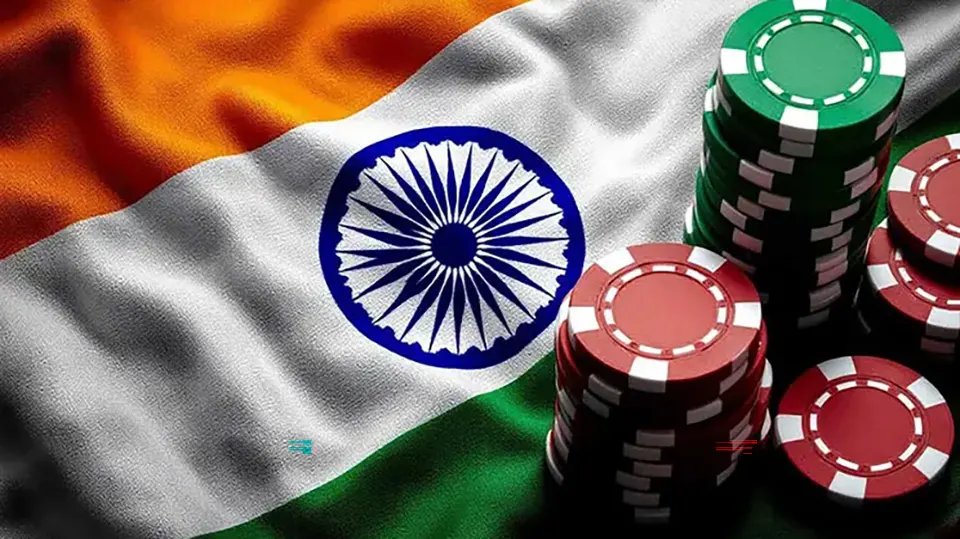The online gaming industry in India has grown at an unprecedented pace, attracting millions of players and significant investment. However, this rapid expansion has also brought regulatory hurdles to the forefront, making the online gaming legal challenge in India a topic of national and international interest. Governments and courts are grappling with how to balance consumer protection, economic growth, and legal compliance in a digital era where gaming transcends borders.

Globally, countries are facing similar regulatory dilemmas, from the United States to the United Kingdom, highlighting the complexity of governing online platforms while fostering innovation. In India, this legal challenge encompasses debates on skill-based versus chance-based games, taxation policies, and state-level restrictions, making it a pivotal issue for players, developers, and policymakers alike.
As the industry continues to evolve, understanding the online gaming legal challenge in India is essential for anyone engaged in digital gaming, from casual gamers to international investors, offering insights into how India could navigate this dynamic landscape while aligning with global standards.
The landscape of online gaming in India has evolved significantly over the past few years. As digital platforms have gained immense popularity, the online gaming legal challenge in India has emerged as a crucial topic. The Indian government has begun to create and amend laws to adapt to this burgeoning industry. Key historical milestones include:
- Enactment of the Public Gambling Act of 1867, which set the groundwork for gambling regulations.
- The rise of internet usage in the late 1990s that transformed traditional gaming into online formats.
- Recent advancements in technology prompting discussions about regulatory frameworks for safe online gaming environments.
Current Trends in Online Gaming
In recent months, online gaming has witnessed remarkable growth and diversification. Notable trends include:
- Increased participation in esports and competitive gaming tournaments
- The rise of mobile gaming apps, which have made gaming more accessible to a broader audience
- Implementation of self-regulatory measures by gaming platforms to foster consumer protection
Importance of Regulatory Framework
A robust regulatory framework is essential for the sustainability and safety of the online gaming market. Some key benefits include:
| Advantages | Description |
|---|---|
| Consumer Protection | Ensures that players’ interests are safeguarded against unfair practices. |
| Tax Revenue | Generates significant income for the government through taxation of gaming revenues. |
| Combatting Illegal Activities | Helps in regulating and monitoring the online gaming industry to deter illegal gambling. |
In conclusion, navigating the online gaming legal challenge in India is essential for fostering a thriving and responsible gaming environment.
Overview of the Controversial Ban
Key Features of the Ban
- Restricts specific online gaming platforms across India
- Targets unregulated betting and gambling activities
- Imposes strict penalties for non-compliance
- Mandates regulatory oversight on gaming apps
Impact on Stakeholders
The online gaming legal challenge in India has sparked significant implications for various stakeholders, including:
| Stakeholder | Impact |
|---|---|
| Players | Restricted access to favorite games and potential legal repercussions |
| Game Developers | Loss of market opportunities and revenue streams |
| Government | Increased regulatory pressures and potential revenue from taxes |
Public Response and Reactions
The ban has ignited debates among the public and industry experts:
- Support for the Ban: Advocates argue it protects consumers and curbs gambling addiction.
- Opposition: Critics claim it infringes on personal freedom and stifles economic growth in the gaming sector.
The online gaming legal challenge in India continues to evolve as discussions resonate among all affected parties, indicating a need for balanced regulations in the rapidly growing industry.
The Role of the Indian Court
Judicial Review Process
Apacaff | The Indian judiciary plays a crucial role in evaluating legal challenges, particularly in regard to the online gaming legal challenge in India. Through the process of judicial review, the courts assess the constitutionality of laws and regulations affecting the gaming industry. Key components of this process include:
- Interpretation of constitutional provisions
- Examination of statutory frameworks
- Assessment of the legality of state regulations
Previous Court Rulings on Similar Issues
Historically, the Indian courts have addressed various matters connected to online gaming, resulting in significant precedents. Some notable rulings include:
- Determinations on skill-based versus chance-based games
- Clarifications on the legality of betting practices
- Securing players’ rights and consumer protections
Significance of the Current Review
The impending review of the online gaming legal challenge in India holds profound implications. It could redefine the landscape for online gaming regulations and potentially:
- Influence legislative reforms
- Shape public policy on digital play
- Impact economic opportunities in the tech sector
The court’s decision will not only impact stakeholders in the gaming industry but also resonate with players nationwide, emphasizing the need for clarity and regulation in this burgeoning sector. ⚠️
Arguments For and Against the Ban
Proponents’ Perspective
Supporters of the ban on online gaming in India argue that:
- Protection of Youth: They believe that online gaming can lead to addiction, particularly among younger audiences.
- Prevention of Gambling: A ban may help curb potential gambling trends that could emerge from unrestricted online gaming access.
- Public Health: Advocates claim that the mental health issues associated with excessive gaming can outweigh its entertainment value.
Opposition’s Arguments
Conversely, those against the ban present several counterarguments:
- Economic Growth: The online gaming industry has the potential to contribute significantly to the economy through job creation and increased tax revenues.
- Consumer Choice: Critics argue that adults should have the freedom to enjoy online gaming without government intervention.
- Regulatory Framework: Instead of a complete ban, they suggest implementing a regulatory framework to ensure safe and responsible gaming practices.
Public Policy Considerations
When examining the online gaming legal challenge in India, it’s important to consider:
- Stakeholder Involvement: Policymakers must engage with various stakeholders, including industry representatives and public health experts.
- International Best Practices: Learning from how other countries manage online gaming could aid in crafting effective regulations.
- Balancing Interests: The challenge lies in finding a balance between protecting consumers and fostering a budding industry.
Potential Outcomes of the Review
Possible Rulings by the Court
The ongoing online gaming legal challenge in India presents several possible outcomes that could significantly alter the landscape of the industry. Here are a few potential rulings from the court:
- Recognition of online gaming as a game of skill, providing a legal framework for operations.
- Complete ban on specific gaming activities, leading to stricter regulations.
- Guidelines for licensing and taxation, fostering transparency in the market.
Implications for the Online Gaming Industry
A ruling in favor of online gaming could yield transformative benefits for the sector, while a negative ruling might stifle growth. Key implications include:
- Enhanced investment opportunities, attracting both domestic and international players.
- Increased revenue through legitimate taxation channels.
- Development of new technologies and platforms aimed at compliance with regulations.
Future of Online Gaming Legislation in India
The outcome of this legal challenge could pave the way for future legislation regarding online gaming. Potential changes could involve:
- Updated laws that clearly define online gaming classifications.
- Collaboration between stakeholders to create a safer gaming environment.
- Provisions for consumer protection and responsible gaming practices.
As the industry evolves, staying informed on the online gaming legal challenge in India will be crucial for all participants in this dynamic marketplace.
International Comparisons
Global Online Gaming Laws
Across the world, countries are establishing diverse frameworks to regulate the online gaming industry. The landscape is complex, with each jurisdiction having its distinct set of rules. Here are some notable examples:
- ?? United States: Varies by state; some have legalized online gaming, while others maintain a ban.
- ?? United Kingdom: Comprehensive regulations are in place, promoting responsible gambling and consumer protection.
- ?? Canada: Online gaming is legal but primarily regulated at the provincial level.
Emerging Trends in Other Countries
Several nations are witnessing shifts in their online gaming policies. Some key trends are:
- Increased Licensing: More countries are opting for licensing frameworks to ensure transparency and safety.
- Focus on Responsible Gambling: Many jurisdictions are emphasizing consumer protection and responsible gambling measures.
- Taxation Models: Innovative taxation practices are being implemented to benefit local economies.
Lessons for India from Other Jurisdictions
India faces its own online gaming legal challenge, but examining other jurisdictions can provide valuable insights:
| Aspect | Possible Implementation in India |
|---|---|
| Regulatory Framework | Create a centralized gaming authority to oversee online gaming activities. |
| Consumer Protection | Incorporate measures for responsible gaming to safeguard users. |
| Revenue Generation | Establish a taxation model for online gaming to boost state revenue. |
By learning from these examples, India can move towards a balanced and modern approach to its online gaming legal challenge.
Expert Opinions

Insights from Legal Experts
As the online gaming legal challenge in India continues to evolve, legal experts are weighing in on its implications:
- Regulatory Framework: Many argue that a robust regulatory framework is essential to protect consumers while fostering innovation.
- Legality vs. Morality: Experts reflect on the fine line between legal practices and societal perceptions of online gaming.
- Taxation Issues: They emphasize the need for clear tax policies to avoid ambiguity that could hinder growth in this sector.
Industry Perspectives
Industry leaders are closely monitoring the online gaming legal challenge in India and share valuable insights:
- Market Growth: Many predict significant growth in the online gaming market if a favorable legal framework is established.
- Investment Opportunities: Investors are keen to enter the Indian gaming market, provided legal uncertainties are resolved.
- Consumer Protection: Industry insiders stress the importance of prioritizing consumer safety in the face of growing competition.
Public Sentiments and Concerns
Public opinions on the online gaming legal challenge in India reveal a mix of hope and skepticism:
- Awareness: There’s an increasing awareness among the public about the legal issues surrounding online gaming.
- Concerns: Many express concerns about potential addiction and the impact on youth.
- Engagement: The community is actively engaging in discussions about the future of online gaming regulation.
Conclusion
Summary of Key Points
As we reflect on the online gaming legal challenge in India, several critical aspects emerge:
- Current regulations are evolving, with various states pursuing their own legal frameworks for online gaming.
- The need for a unified national policy is increasingly evident to ensure clarity and compliance across the industry.
- The booming gaming sector is expected to contribute significantly to India’s economy, attracting both local and foreign investments.
- Awareness and education regarding responsible gaming practices are essential for safeguarding players.
Looking Ahead: The Future of Online Gaming in India
The online gaming legal challenge in India is set to shift as stakeholders continue to advocate for reform. Here’s what we can anticipate:
? States may introduce more comprehensive regulations, balancing protection with innovation.
- Increased investment from tech companies aiming to tap into India’s vast player base.
- Greater attention to consumer rights and responsible gaming initiatives.
- Collaborations between private enterprises and government bodies to push for uniform laws.
With these developments, it’s clear that the future of online gaming in India holds exciting possibilities, provided that legal frameworks adapt to the dynamic nature of the industry. The potential for growth and responsible gaming practices will be instrumental in shaping this vibrant sector.












